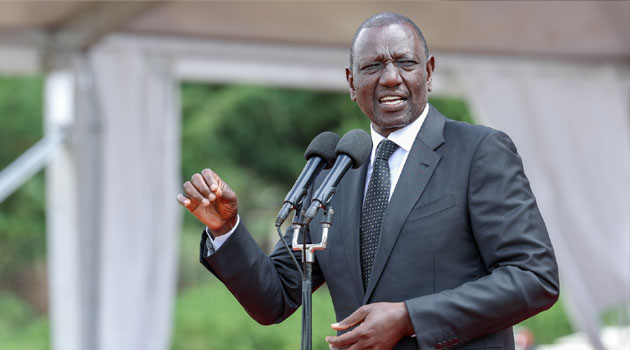On Monday, President William Ruto accused the Ford Foundation of funding anti-government protests in Kenya.
Speaking in Nakuru, Ruto claimed the New York-based NGO was sponsoring unnamed groups to infiltrate peaceful protests organized by young Kenyans, inciting violence.
The President's accusation has put the foundation under heavy scrutiny from Kenyans who are now closely examining its activities, history, and potential influence on African democracies.
The Ford Foundation has a contentious history in Africa, having been accused of political interference in countries such as Uganda, Nigeria, and South Africa.
Kenya
Before President William Ruto's public criticism, the Ford Foundation was relatively unknown to many Kenyans. However, Ruto's accusations have made it a national topic.
"I want to ask the people from Ford Foundation to explain to us what they seek to gain by destabilizing Kenya's democracy," President Ruto stated during his development tour in Nakuru.
Political commentators and politicians argue that the foundation's efforts to promote certain democratic practices and policies may be perceived as interference in Kenya's internal affairs.
The Ford Foundation later denied the allegations, stating, "While we acknowledge the right of Kenyans to peacefully advocate for a just and equitable country, we repudiate any actions or speech that are hateful or advocate violence against any institution, individual, or community."
Uganda
In Uganda, the Ford Foundation's support for LGBTQ+ rights and reproductive health initiatives has been controversial.
The foundation partnered with other organizations to create the first LGBTQ Racial Justice Fund in 2014. However, given Uganda's conservative stance on these issues, some politicians and community leaders have accused the foundation of promoting values contrary to their cultural and religious beliefs.
In August 2019, President Yoweri Museveni accused the Ford Foundation of political interference and supporting LGBTQ rights. "The Ford Foundation is meddling in our affairs, funding activities that are against our culture and values. They support those who promote homosexuality and other un-African behaviors in our country," Museveni stated.
Nigeria
In Nigeria, the Ford Foundation has faced criticism for its alleged interference in the country's democracy.
In April 2021, former Nigerian Minister of Information and Culture, Lai Mohammed, accused the Ford Foundation and other foreign entities of funding activities aimed at undermining the Nigerian government. "These foundations – Ford Foundation, MacArthur Foundation, and the likes – are actively funding separatist movements in Nigeria, attempting to destabilize the country by fueling division and supporting groups that aim to disintegrate Nigeria," Mohammed was quoted as saying.
Additionally, the foundation was accused of involvement in the Niger Delta region. Local activists and community leaders argued that the foundation's programs did not adequately address the root causes of conflict and underdevelopment and that its approach sometimes aligned more with the interests of multinational oil companies than with those of local communities.
South Africa
In South Africa, the Ford Foundation has also faced backlash.
In 2017, then-President Jacob Zuma accused the Ford Foundation of meddling in the country's political affairs, claiming it was funneling funds to organizations seeking to undermine the ruling African National Congress (ANC). "The Ford Foundation is not just a charity organization. It has become clear that they have a political agenda, one that is not aligned with the interests of South Africa. They are providing financial support to opposition groups and NGOs that are working tirelessly to destabilize our government," Zuma stated.
Minister of State Security David Mahlobo echoed these sentiments in a parliamentary debate on June 12, 2017, arguing that the Ford Foundation's activities posed a significant threat to national security. "We have evidence that the Ford Foundation is funding entities involved in subversive activities. These organizations disguise their true intentions under the guise of human rights and democracy promotion. However, their ultimate goal is to create instability and chaos in South Africa," Mahlobo stated.

